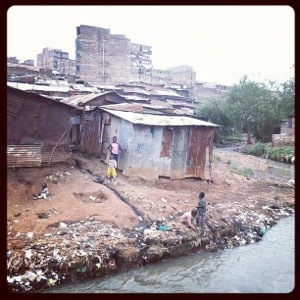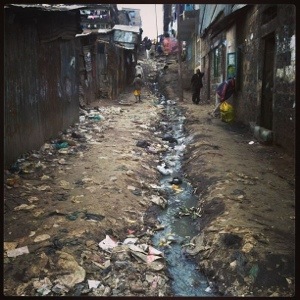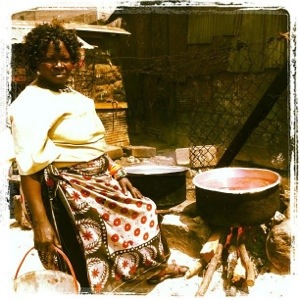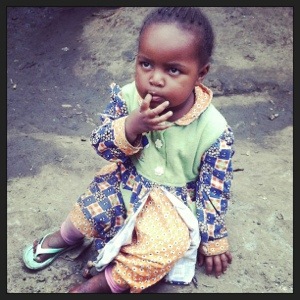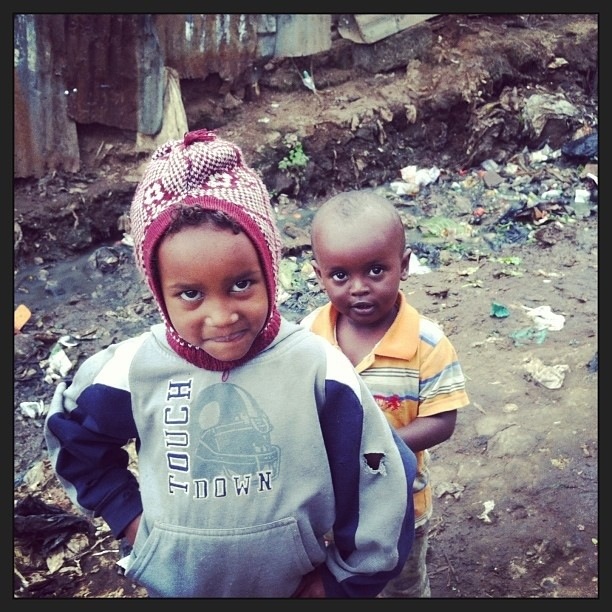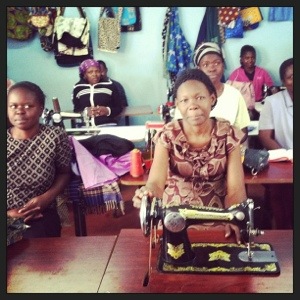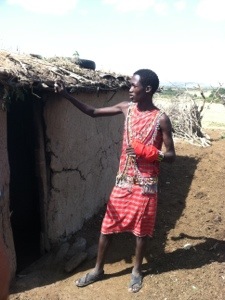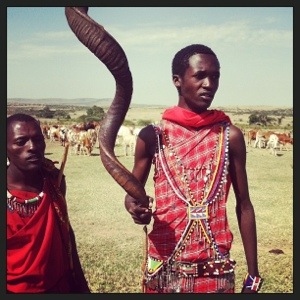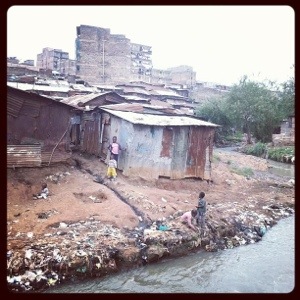There is a lot more to write about the ministries we saw in Kenya, but it is time to move on to the Uganda portion of our trip!
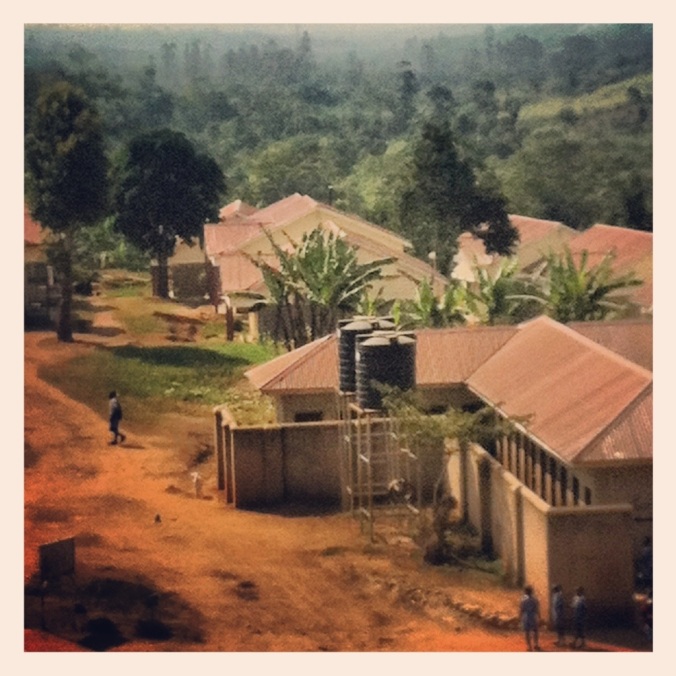 Adventure Village
Adventure Village
Our first stop was Adventure Village, an orphanage our church helped build and has worked with for many years (I think we’ve sent teams there every years since 2007). We spent a few days there, helping to distribute backpacks and clothes that were collected and sent over by generous folks at our church. It didn’t matter how organized we’d been in collecting the goods (life groups were assigned different homes at the village–group members all picked one child to “sponsor”). But, unbeknownst to us, there had been a bit of a shuffle at Adventure Village, with most of the children living in different homes.
So chaos reigned, as it is so apt to do in Africa, but a joyous chaos it was as children received their gifts from afar.
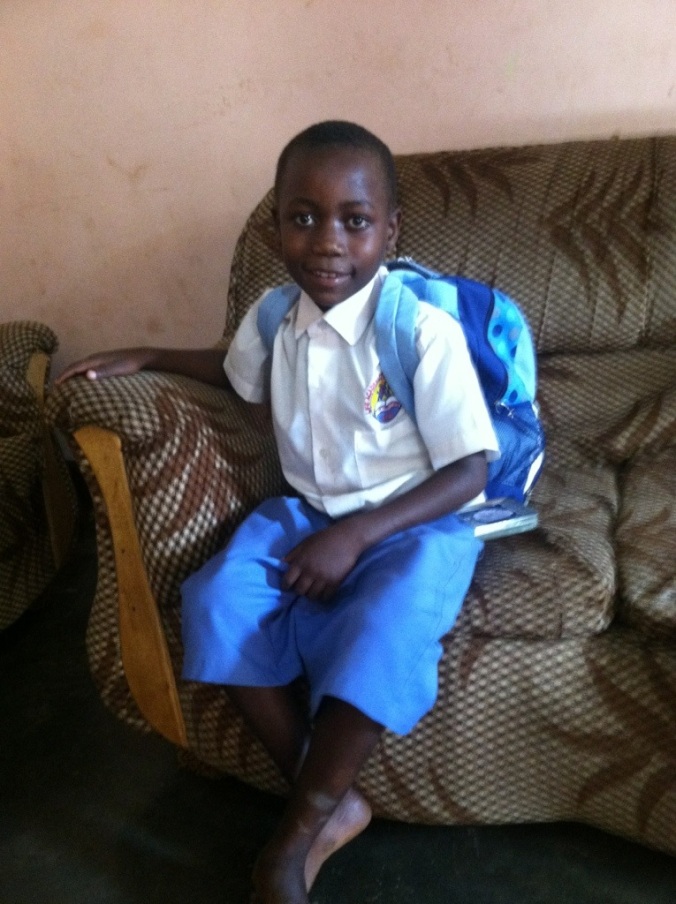 A happy camper, waiting for his new shoes!
A happy camper, waiting for his new shoes!
The highlight of our visit to Adventure Village was spending time with Resty, a young girl sponsored by our oldest daughter (who met her on that first trip in 2007, shortly after Resty had come to the orphanage). We’d met Resty three years ago, when Greg and I flew over for our youngest daughter’s wedding. In fact, Resty and a teacher from Adventure Village were able to attend the wedding and join in the fun. Resty regularly sends us letters about her life at the village–she even sent a short version of her life story recently.
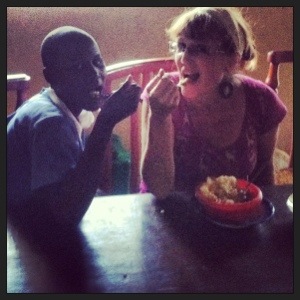 Eating my first beans and posho with Resty
Eating my first beans and posho with Resty
Not all of the children at Adventure Village are true orphans, Resty included. According to her account, her mother and father separated when she was young. Her mother remarried, and her husband did not want the children from the previous marriage. He beat the children (Resty had two brothers that I know of) and life was so miserable it was decided that they would go live with their father. The details are a little sketchy at this point, but their father was murdered around this time. And shortly after that, their mother brought them to the orphanage.
Losing both your parents would be a terrible trauma, but my heart breaks at the rejection and abandonment experienced by Resty and her siblings. Resty has mentioned to me several times how much it meant to her that my daughter chose her, closely following the heels of her own mother’s rejection. Even though Lindsay hasn’t been back to Africa or seen Resty since, there is an incredibly strong connection there. Such power in being chosen!
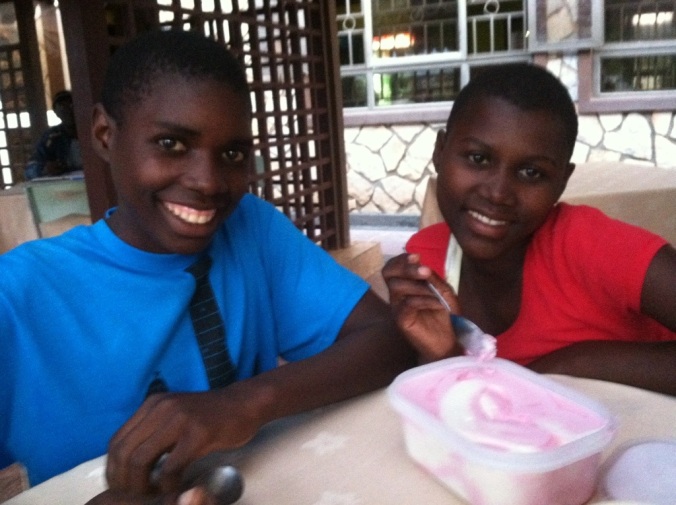 Resty and her brother Michael, enjoying ice cream!
Resty and her brother Michael, enjoying ice cream!
My prayer for Resty–and all the “orphans” of this world–is that she would know she is chosen by her Heavenly Father. And that this truth would fill and heal her heart. It hit me hard on this trip that all the backpacks, all the shoes, all the ice cream couldn’t fill the empty part of their hearts. Sometimes I wonder if the stuff we give them even makes the emptiness worse.
There is a song that we often sing at my church, “Only You can Satisfy.” Every time I hear it, I think of Resty and all the little children I met on our travels and pray that the love of Christ will satisfy their hungry souls.


